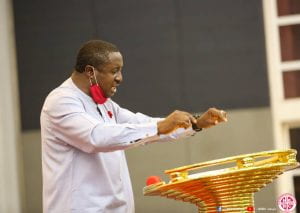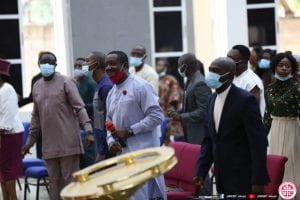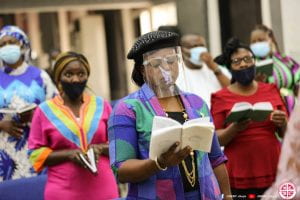by Gracious Okoronwko
 |
 |
 |
 |
 |
New Estate Baptist Church, Abuja, like many other churches is a multiethnic congregation, with a membership of more than five hundred people from different parts of Nigeria. It is also a multigenerational church that has both the young and old people worshipping together. The music culture of the church is influenced by her demography and multiethnic nature and characterized by her unique collection of ideas about music, activities involving music, repertories of music, and the material culture of music, which are the four basic components of music culture.
Although a predominantly English-speaking church, the significant use of other indigenous languages in musical expression is prevalent. Gospel songs and choruses are mostly sung in English and the three major languages in Nigeria – Igbo, Hausa, and Yoruba. For ease of interpretation, all songs are projected from a screen and translated accordingly to help the congregation sing with understanding. Different musical styles are also employed to accommodate different preferences, and these gospel songs and choruses formed the music repertoire of the church.
As the minister of music and worship, saddled with the responsibility of overseeing the administration and practice of music in the church through the coordination of the music ministry, I observed that hymn singing was lacking in the repertoire of the church. So, we decided to bolster the art of hymn singing by including at least two hymns for every Sunday service in the last ten years. This development led to the procurement of a Viscount Prestige 100 Electronic Organ which is dedicated for hymn playing and accompaniment of classical anthems. Hymnbooks were also procured, and families were encouraged to own hymnbooks and sing hymns regularly at home. The introduction of hymn singing in the last ten years brought about a remarkable change in the material culture as a component of the music culture of the church. The inclusion of hymns in the repertories of the church contributed greatly in building the expectations of the congregants who look forward to singing hymns among other styles and genres of songs every Sunday.

